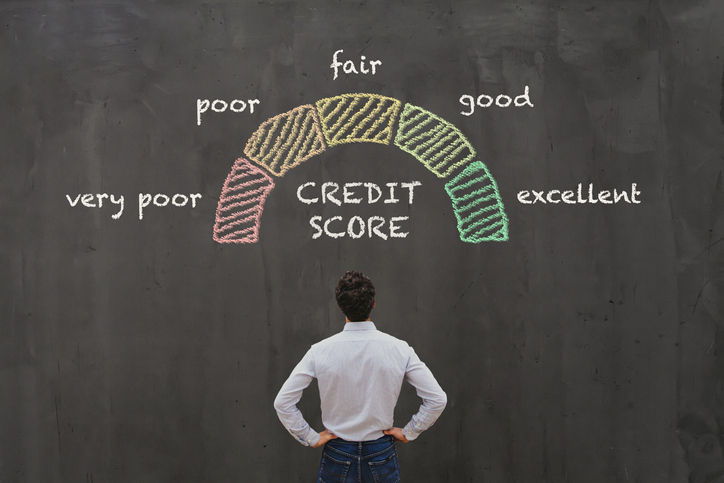-
Personal
Banking
Mortgages
-
Agribusiness
Mortgages
Loans
Farm Transition Program
-
Commercial
Banking
Mortgages
Loans
Business Services
-
Investing
Products -
Community
Community Development
Sponsorship and Donations
Financial Literacy
Volunteerism
Community Reports
Scholarships
Building Communities Grant Program
-
About
Our Roots
Our Communities
Annual Reports
Careers
Diversity and Inclusion

- Blog
- Protect Money
- Credit Score Myths
AUTHOR: BRUCE LUEBKE, COMMUNICATIONS AND CONTENT COORDINATOR
Credit scores are an area of personal finance that many people are intimidated by or find difficult to understand. With a lot of credit score advice floating around, it is hard to know what to believe.
The most common mistake is thinking you have no control over your credit score. Your credit score reflects your borrowing and repayment behaviours, and that means you have a lot more control over it than you think.

Boosting your credit score is not something that can happen overnight. The good news is that the things you can do to positively influence your score are simple and do not require a lot of time or effort. You will have to be patient while waiting for your new good credit habits to take effect. Your credit score is more of a track record than a snapshot, so consistency is key.
Thinking that checking your credit score will negatively affect it comes from confusing two different types of credit score inquiries: hard inquiries and soft inquiries. Hard inquiries are made by lenders or credit card companies when you apply for a new line of credit (a loan, a new credit card or a mortgage). Soft inquiries are made by you or by others for background check purposes (a potential employer or landlord). Because hard inquiries suggest you might be taking on more credit soon, they usually lower your score by a few points. Soft inquiries, on the other hand, do not affect your credit score in any way. This means you have nothing to lose by accessing your score. Doing so will help you understand what your current credit activity looks like and how you can improve it.
Another misleading assumption is that opening or closing a bunch of credit cards will improve your credit score. This is because opening and closing credit cards affect several different aspects of your credit score.
Opening new credit cards gives you more available credit, which in turn lowers your credit utilization ratio. This is a sophisticated term for available credit you use each month. For example, if you have one credit card with a $1,000 limit and charge $200 to your credit card that month, your credit utilization ratio is 20%. Lowering your credit utilization ratio is a good thing, so opening new credit cards to boost your score might seem like a solid strategy. However, opening a bunch of new credit cards means a sudden increase in the number of hard inquiries. Each hard inquiry docks a few points from your score, and if many are made within a short amount of time, it does not reflect well, which can further negatively influence your credit score.
Closing a bunch of accounts is not ideal either. Depending on the accounts you close, you could unintentionally be raising your credit utilization ratio and shortening the overall length of your credit history. Both consequences lower your credit score.
The best approach is to space out any credit account openings or closings. Try to time them in a way that any short-term negative impact on your credit score will not interfere with an important upcoming car loan or mortgage. Do your research, only apply for credit products you need, and understand what a specific credit card is contributing to your score before deciding to close it.

